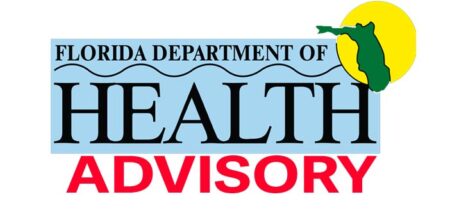Chikungunya, a virus transmitted by mosquitoes to humans, has made its way to Northwest Florida.
The first known cases of Chikungunya virus (CHIKV) in the Americas were reported in the Caribbean in December 2013. As of this summer (2014), up to 500,000 cases of CHIKV have been reported in the Caribbean. In July this year, CHIKV spread to Florida from people who visited areas where outbreaks were on-going.
I called Dr. C. Roxanne Connelly, UF/IFAS Extension Medical Entomology Specialist, to get the most recent information concerning CHIKV in Florida. She shared that so far in 2014, 137 cases of CHIKV have been reported in Florida from individuals with travel history to a CHIKV endemic country or area. Three individuals from Escambia, Santa Rosa and Okaloosa Counties are included in the 137 cases.
In addition, four “locally acquired” cases of CHIKV were reported in three Florida counties so far in 2014 – 1 in Miami-Dade, 2 in Palm Beach and 1 in St. Lucie. Florida mosquitoes transmitted the virus. This is what is meant by “locally acquired.” The four diagnosed individuals did not travel outside of Florida.
The two mosquito species which transmit this virus to humans do not come from large bodies of water such as marsh areas or retention ponds. Connelly referred to them as “container mosquitoes.” The two species are the Aedes aegypti and the Aedes albopictus, also known as yellow fever and Asian tiger mosquitoes, respectively.
They prefer to breed in small containers. Examples include soda cans, birdbaths, rain barrels, garbage can lids, tires, plant saucers, wheelbarrows, buckets, fallen magnolia leaves, toys, etc. Connelly said that they have seen these mosquitoes breeding in the small amount of standing water found in the seat of a child’s riding tractor. Water that collects on tarp-covered boats is a major breeding site.
There currently is no vaccine for this disease. The best prevention is to eliminate mosquito breeding habitats and to correctly use EPA-approved repellents when involved in outdoor activities.
Routinely look around your yard for standing water. Replace water in birdbaths and pet dishes frequently, cover rain barrel openings and gutters with house screen, discard or cover old tires, etc. Encourage your neighbors to do the same.
CHIKV symptoms can include fever, joint pain, headache, muscle pain, joint swelling and rash. According to the Centers for Disease Control and Prevention, CHIKV is rarely fatal but can be disabling and some symptoms can last weeks to years. You must be tested by a medical doctor to confirm diagnosis of this disease. Avoiding mosquito bites is the key to avoid CHIKV.
More information is available through the following websites. https://mosquito.ifas.ufl.edu, http://fmel.ifas.ufl.edu, http://www.floridahealth.gov
Larry Williams, UF/IFAS Extension Agent, Okaloosa County, August 7, 2014





